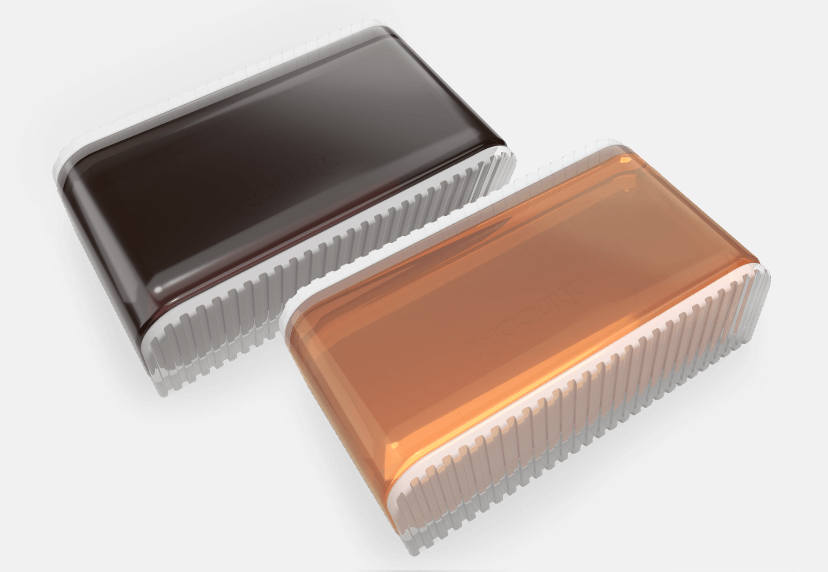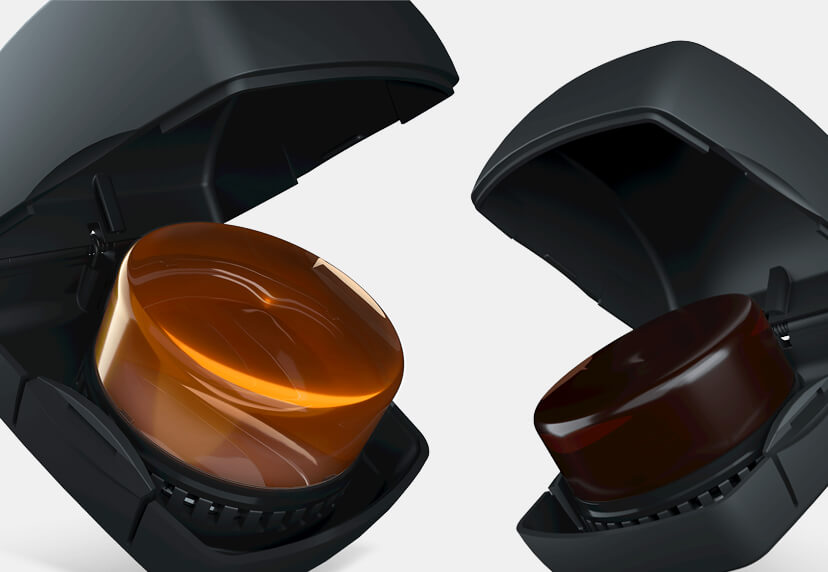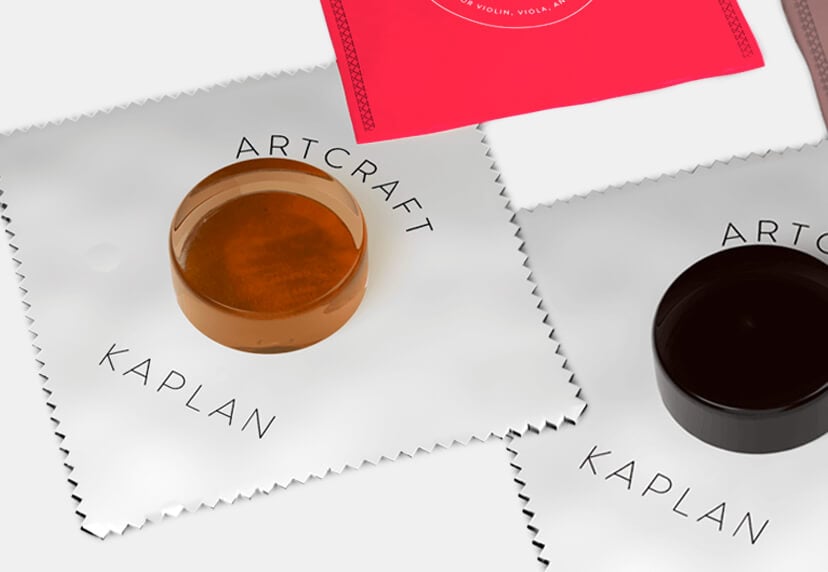Orchestral Bow Rosin
Rosin up your bow with D’Addario premium rosin and always play your best. Our rosin products work great for violin, viola, and cello.

NATURAL ROSIN
Its unique plastic channel provides an easy grip for students and is packaged to fit nicely into instrument cases. D'Addario Natural Rosin offers premium performance at a great value.

KAPLAN PREMIUM ROSIN
Kaplan Premium Rosin is a high-quality rosin formula that delivers a clean, low-dust application. It is housed in a sleek, modern jewel case for easy accessibility. The cake within can be rotated for even distribution of product onto the bow hair.

KAPLAN ARTCRAFT ROSIN
Kaplan Artcraft Rosin is a classic rosin formula that works well with a wide range of instruments and playing styles. It is shaped in a traditional circular cake and wrapped in felt, offering an easy-to-use experience for string players of all genres and levels.
WHAT IS ROSIN?
Rosin is a sticky substance which is applied to the bow of an orchestral instrument. The consistency of the rosin helps create friction between the bow and the instrument’s strings, which allows for easier playing and a stronger sound.
-
What is Rosin Made of?
Rosin is made of tree resin, which is like sap. Resin is a sticky liquid which is usually derived from pine trees. To make rosin, the raw resin is heated until it becomes solid. The end product, known as rosin, looks glassy in texture but is actually brittle and can break somewhat easily.
-
What’s the difference between rosin and resin?
Rosin is simply tree resin in solid form. We heat resin under high heat to cause it to harden into rosin.
-
Why do I need to use rosin?
Applying rosin to your bow hairs adds enough stickiness to enable them to grip your strings. Your strings cannot vibrate successfully if the bow hair does not grip the strings properly.
-
How does rosin work?
-
How often and how much rosin should I apply to my bow?
We suggest 2-3 swipes before every playing session.
TYPES OF ROSIN
Rosin comes in Light and Dark options. At D'Addario, our light rosin is hard, and our dark rosin is soft. The main difference between light and dark is the melting point, which translates to being either more or less sticky.
Dark rosin (soft) has a lower melting point and feels stickier. The extra stickiness helps players grip the string with the bow hair, making it great for people who play instruments with wider/longer bow hair (i.e., cello or viola).
Light rosin (hard) is less sticky, making it easier for people who have lighter bows or who might not need the extra leverage on their bow. This is good for the upper string players, like violin or viola.
-
Do I need light or dark rosin?
First of all, it's important to keep in mind that rosin color can vary from company to company. Don't rely on color alone when choosing rosin!
At D'Addario, our light rosin is hard, and our dark rosin is soft.
SOFT ROSIN (DARK ROSIN)Ideal for: Cello and double bass
Soft rosin is stickier and thicker strings require more stickiness to move efficiently.
HARD ROSIN (LIGHT ROSIN)Ideal for: Violin and viola
Hard rosin is less sticky and is ideal for faster bow speeds and ease of bow response.
D’Addario Clarity rosin is a hypoallergenic synthetic rosin that goes on clear. It performs similarly to traditional pine rosins but without the risk of allergies.
-
What qualities should I look for in a rosin?
Any high-quality rosin will coat the bow hair uniformly without creating a large amount of excess dust.
HOW IS ROSIN MADE?
The process of making rosin is pretty straightforward. Tree resin is collected by cutting and tapping a tree. The resin is then heated, sometimes in combination with other ingredients, which may affect the color or material quality of the resin. The final result is a solid piece of rosin which can be applied directly to the bow.
-
What trees do you use when collecting resin? / Where does D’Addario source its resin?
The main ingredient of rosin is tree resin from conifers, such as pine or larch trees. Small amounts of additives are then added to change the rosin properties, such as its hardness.
-
Does rosin expire or go bad?
Rosin can last anywhere between 6 months to over 2 years depending on how it is maintained and stored. Rosin hardens with age and you should replace your rosin
if you notice that it drawing your bow across the cake no longer creates a trail of dust. -
What else do I need to know about rosin?
Most players use too much rosin on their bow hair and rosin too often, resulting in a rough, gritty sound, and rosin build-up on their instruments. You can avoid this by applying only a small amount of rosin (2-3 swipes) at the beginning of every playing session. Wipe down your instrument and strings at the end of every playing session to avoid rosin build-up.